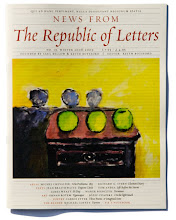There are some very simple facts about the recent UK elections that I think bear reflection; on this side of the Atlantic they are clearly not very well understood.
1. This is a 'hung' parliament, which means that no one party has a clear majority. Despite television's attempt to dumb us all down, UK voters were not choosing between three party leaders, Messrs Cameron, Brown and Clegg, but among 650 distinct parliamentary seats, most of them contested by between six and ten-plus candidates.
2. The final results were, in terms of seats: Conservatives: 306, Labor: 258, Liberal Democrats: 57, Others: 28.
3. In terms of popular votes, the results were: Conservatives: 36.1%, Labor: 29%, Liberal Democrats: 23%, Others: 11.9%.
4. Conclusion: A little over 1/3 of the popular vote is not a democratic mandate for a conservative government. Thus, two possibilities exist: (1) A coalition between one or more parties, or (2) a minority government which can be overthrown by any adverse vote.
5. If popular votes are what counts, then these offer tantalizing possibilities. Assuming that the 'Others', a host of nationalist parties, would split evenly (a big assumption), the two major coalitions possible would be: Conservative 36.1% + Liberal Democrats 23.0% + Others 6% would give Mr. Cameron the theoretical backing of 65.1% of votes cast. The alternative alliance would be: Labor 29% + Liberal Democrats 23% + Others 6%, or 58%. If politics were simple, that would suggest the first alternative would form the government, and in all probability, it will.
Buried in all this simple arithmetic is the main Liberal Democrat argument that the current first-past-the-post electoral system (winner takes all) is unfair. In this, they are absolutely correct. In fact, the Conservative 36.1% of the overall vote produced 47% of the seats; for their 29% of the vote, Labor got 39.6% of the seats; while for their 23% of the vote, the Liberal Democrats got only 8.7% of the seats.
Does this mean that it takes four times as many popular votes to elect a Liberal Democrat than a Conservative. NO! It just means that in a number of constituencies, a shift of a few hundred votes would have produced a far different result.
We are a first-past-the-post nation, and our system is every bit as inherently unfair as the UK system. But ours is a presidential system; the UK's is not. And God bless the UK system for that. The Prime Minister may have a cozy home at 10 Downing Street, but it has no swimming pool in the basement, its own tennis court, Air Force One and the kind of worship and importance we offer our president, worthy or not. When he goes to work, the PM is simply the chair of a cabinet meeting and the titular 'head' of his party. Unlike a president, he does not have to appear among the rowdies of the House or the Nodders of the Senate to advance his legislation.
One might think that Mr. Clegg's troops are the ones with the greatest grievance, and that is indeed so. That is why their part in any possible alliance rests on a 'reform' of the UK electoral system, so that the popular vote is better reflected in the distribution of representatives.
Here, another vital factor comes into play. Under the UK system, and most European systems of Proportional Representation, a government may fall when it is unable to obtain a vote of confidence on a critical piece of legislation, such as the Budget. The US government cannot fall. A president may fail to get his budget (or anything else) passed a dozen or more times; he and his legislators perforce have to work things out. That is because president and legislators have set terms of office, which is something Mr. Clegg would like to see, and I would not.
The UK's current system has its faults, but it also has many advantages: (1) it is very local and therefore responsive to the problems of each constituency; (2) it is fallible, and may readily be punished (by the dissolution of parliament) if its legislation is faulty or out of touch with public opinion -- how many times in the past year wished we could have a snap election and rid ourselves of certain noxious legislators? --; and (3) the absence of set terms means that election campaigns do not start the moment a legislator is elected, but are limited to thirty days, which essentially means that money has far less of a chance to influence the result.
The faults of PR are obvious. Italy, for instance, can be so unstable that as many as three governments may (and have) fall within a month. On the other hand, Italy's president is no monarch: as Messrs Sarkozy and Obama seem to think they are. The Italian president is trotted out to cut ribbons, inspect honor guards, and receive political leaders in search of forming a government -- functions performed ably, in the United Kingdom, by H.M. the Queen.
Could it be that democracy itself has its faults, and that it is, as was famously said, the worst possible form of government except for all the others?
Lahti
2 years ago













For all the others! That´s great I hadn´t heard that.
ReplyDelete